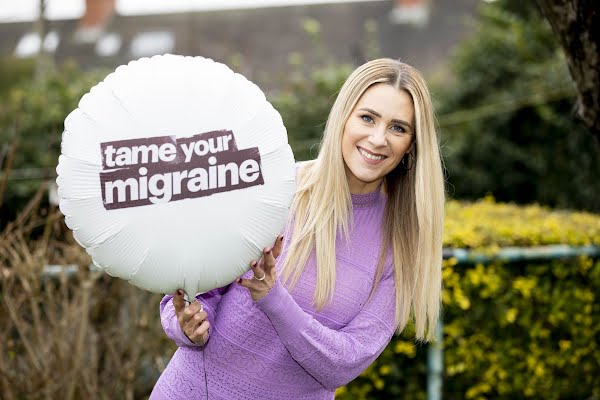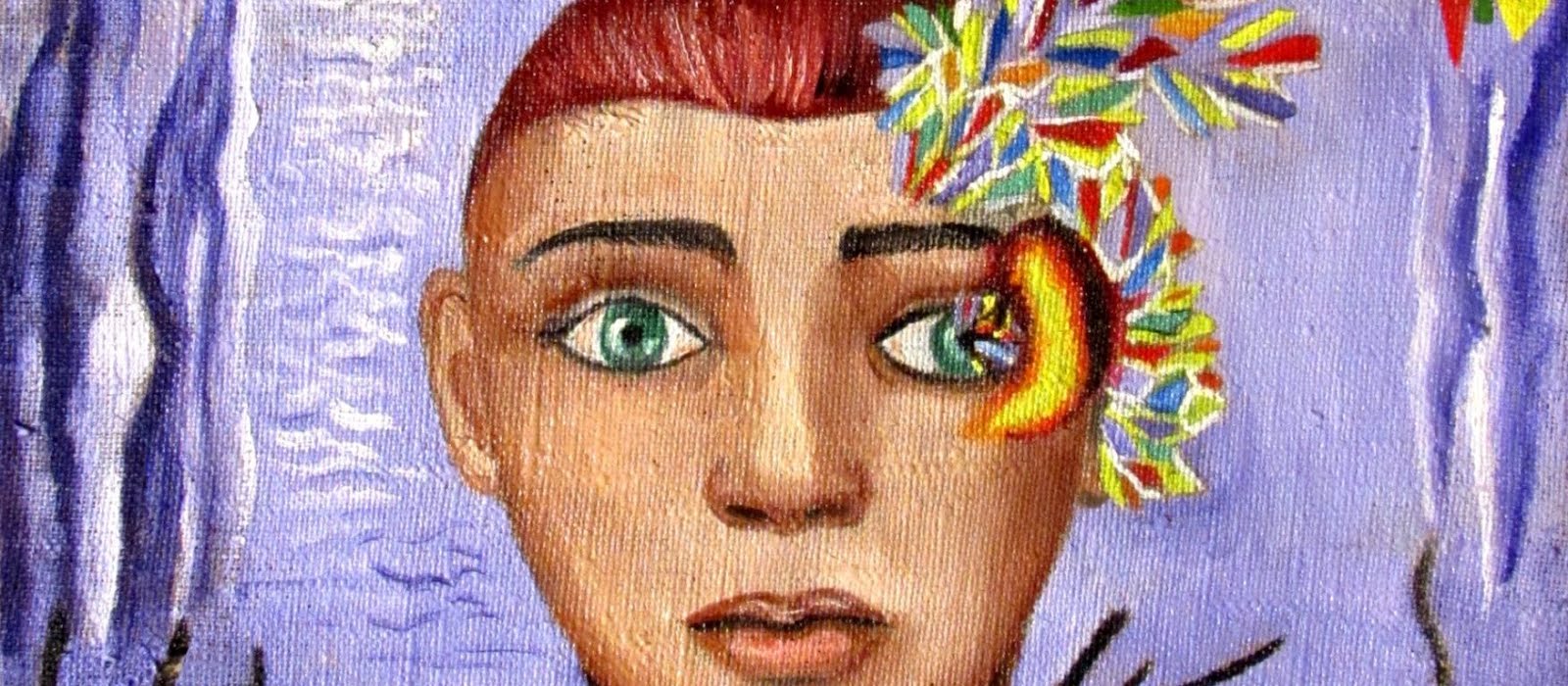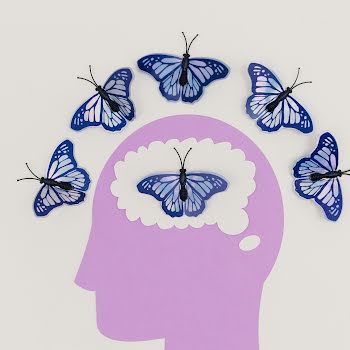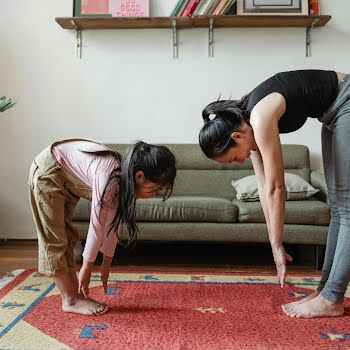
Living with migraines: ‘It’s a chronic disease… I will retreat to a dark room for hours on end’
A new survey released by the Migraine Association of Ireland (MAI) says that 32% of respondents reported losing 12 days or more due to migraines each month. RTÉ broadcaster and mother of two, Evanne Ní Chuilinn spoke to IMAGE.ie about dealing with them frequently as she highlights a new campaign – #TameYourMigraine – to raise more awareness about what is a chronic condition.
The MAI defines migraine “a complex neurological condition” which affects approximately 12-15% of the Irish population, or roughly half a million people in Ireland. It is Ireland’s fifth leading cause of disability and while it affects people of all ages, figures show migraine is three times more common in women than in men. Migraine remains a misunderstood and under-managed condition, despite the high number affected by it.
Dr Martin Ruttledge, Consultant Neurologist, Beaumont Hospital and The Hermitage Clinic, explained in a little more detail that a migraine is caused by a “hypersensitivity of nerves within the brain, typically leading to headache and many other neurological symptoms.”
Migraines can come and go but for the majority, they are chronic and debilitating and can and do affect every aspect of daily life from work, social life and relationships with family and friends. “It is not strictly caused by anything, but it is a biological predisposition or susceptibility in some people, and it can be triggered by many factors including hormones, fasting, sleep alteration, weather, and stress,” Dr Ruttledge added. “Migraine patients typically have a headache and several other neurological symptoms with attacks (neck stiffness, light sensitivity, and so on).”
“I experienced my first migraine when I was just six. I described pain in my eyebrows to my mum and I was squinting,” explained Evanne, who has been dealing with frequent migraines her entire life. “It developed into a very bad sensory experience. Throughout my teens and university years, I would regularly have to go home early from a class, a day trip or a night out because of migraine. My triggers include smoky atmospheres (pre-smoking ban!), bright lights, chlorine and noise – I remember often getting a migraine as a child after a swimming class. In more recent years, I find that tiredness, stress and dehydration are triggers too.”
The condition is one that many are very much still in the dark about; dismissing a migraine as a simple headache is wrong first and foremost, and she says this is why #TameYourMigraine exists. “If people knew that it’s a condition that debilitates the patient entirely, that would be a start. I’ve definitely ploughed on at work or at social occasions simply because I didn’t want to be seen as lazy or as a party pooper. If people understood that this is a chronic disease, we wouldn’t feel like a nuisance when an attack hits.”
They [the attacks] can be intermittent, she says, or when they get especially bad she can experience multiple attacks very close together. “Some months I experience six or seven migraine attacks while other months are better and I may only have two episodes. Ten years ago I spoke to my doctor about migraine prevention which has been life-changing, though hasn’t ended my migraine attacks completely. Staying hydrated and relaxing in a dark, quiet room is still what works best for me.”
Often, my vision or speech would be a bit wobbly before the headache kicks in. For me, I get a very intense throbbing pain behind my eye on either side of my head - usually the left side. I have had good streaks and bad, and could vary from 15 attacks a month to 4.
Life-altering
As a busy, working mum of two, she explains that for quite a few years she simply lived with migraines and tried to “plough on” before getting to a stage where she knew she couldn’t continue.
“Migraineurs often just get on with it, and I’m no different. Sometimes I try to ignore the migraine and plough on, because if I stopped and went to bed every time I got a migraine I’d have no life!” she continued. “Other times, I will retreat to a dark room for hours on end, and my family have come to expect that, and they support me. It is what it is – but I would not advise ploughing on! Go see your GP, and you will get some help. I was referred to a neurologist last year, and hadn’t even realised there was such a thing as a migraine clinic. This is why the Tame your Migraine campaign is so important.”
 Pictured at the launch of the Migraine Association of Ireland and Novartis ‘Tame Your Migraine’ awareness campaign in Dublin is RTE sports broadcaster and migraine sufferer Evanne Ní Chuilinn. Picture Andres Poveda
Pictured at the launch of the Migraine Association of Ireland and Novartis ‘Tame Your Migraine’ awareness campaign in Dublin is RTE sports broadcaster and migraine sufferer Evanne Ní Chuilinn. Picture Andres PovedaShe echoes the sentiment from the MAI findings that it’s very much a misunderstood condition. “I do believe that the condition is misunderstood. A migraine isn’t a ‘headache’, it’s a very debilitating condition that affects your ability to see, hear, balance, smell and simply function in daily life,” she adds. “I feel like the term can be bandied around a bit by people who say they have a migraine, when really they have a tension headache or are dehydrated. I have taken a lot of comfort in this campaign, because I’ve spoken to so many people who understand the pain. It can be quite isolating to know that most of the people around you have never experienced migraine, and have no idea what you’re going through.”
Patrick Little, CEO, the Migraine Association of Ireland, added that unfortunately, lockdown has seen migraine frequency increase for many suffers but urges people not to ignore symptoms or suffer in silence. “We know that unfortunately many people living with migraine have experienced an increase in severity and frequency since the beginning of the pandemic, and we’re seeing now the knock-on effect that’s having on individuals’ self-confidence,” he said. “It’s unfortunate to see that so many in our community feel they’ve lost control of their condition. Please don’t feel like you’re alone in this… The MAI is here to help you.”
Managing symptoms
In terms of managing symptoms, Dr Ruttledge had this advice: “Exercise at least 3-4 days each week at a moderate level for 45-60 minutes. Eat regularly and watch your diet, avoid skipping meals. Try to keep a good sleep routine. Alcohol in moderation. Do not take painkillers/analgesia or acute medication more than two days a week. Avoid codeine/opiates. Contact GP and/or MAI for advice if your headache and migraine symptoms exceeding two days a week.”
“If you’re worried about your condition, please contact your GP to discuss management options. We are conscious that a lot of people might be worried about contacting their primary care doctor at this time during the Covid19 pandemic, but please do so if you are concerned.”
For more information on migraine and the Migraine Association of Ireland, please visit www.migraine.ie, call 1850 200 378 or contact your GP to schedule an appointment.























